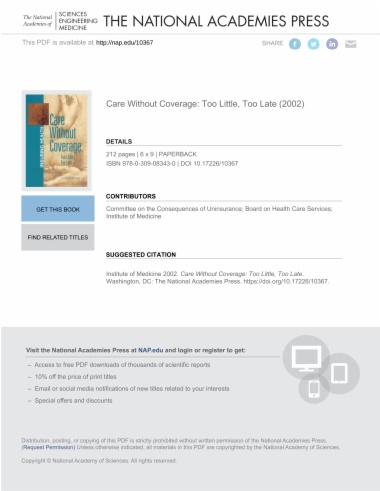

Many Americans believe that people who lack health insurance somehow get the care they really need. Care Without Coverage examines the real consequences for adults who lack health insurance. The study presents findings in the areas of prevention and screening, cancer, chronic illness, hospital—based care, and general health status. The committee looked at the consequences of being uninsured for people suffering from cancer, diabetes, HIV infection and AIDS, heart and kidney disease, mental illness, traumatic injuries, and heart attacks. It focused on the roughly 30 million—one in seven—working—age Americans without health insurance. This group does not include the population over 65 that is covered by Medicare or the nearly 10 million children who are uninsured in this country. The main findings of the report are that working-age Americans without health insurance are more likely to receive too little medical care and receive it too late; be sicker and die sooner; and receive poorer care when they are in the hospital, even for acute situations like a motor vehicle crash.